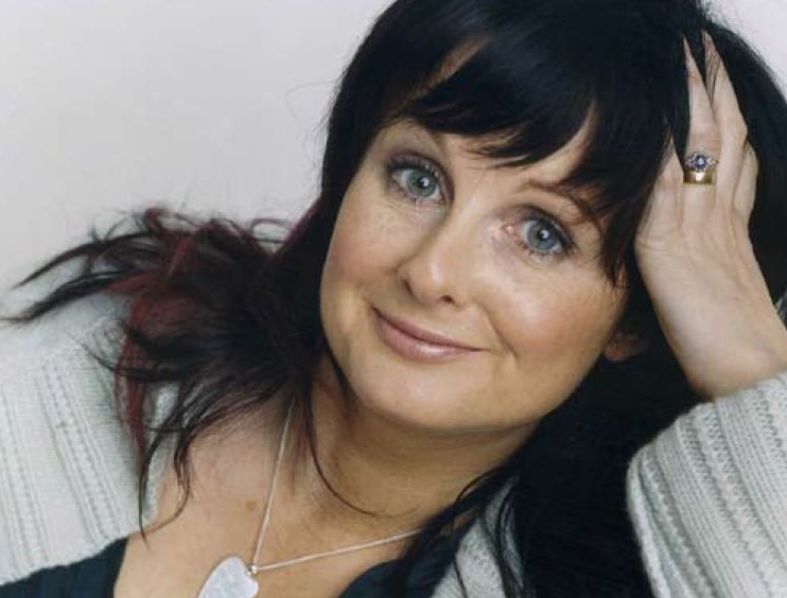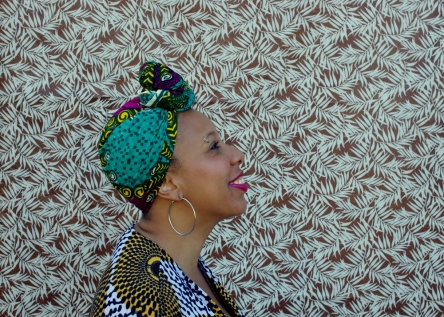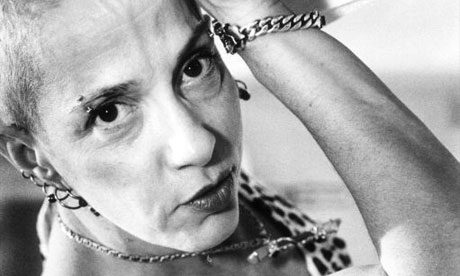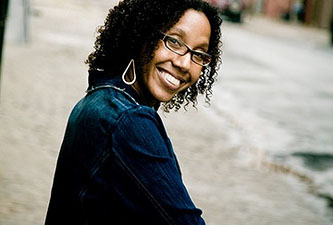In the media is a weekly round-up of features written by, about or containing female writers that have appeared during the previous week and I think are insightful, interesting and/or thought provoking. Linking to them is not necessarily a sign that I agree with everything that’s said but it’s definitely an indication that they’ve made me think. I’m using the term ‘media’ to include social media, so links to blog posts as well as traditional media are likely and the categories used are a guide, not definitives.

The Cannes Film Festival’s been in the spotlight (haha) this week for turning women away from a screening because they were wearing flat shoes. Heels as compulsory footwear for women may or may not (depending which day it is someone asks) be part of their dress policy. Helen O’Hara writes ‘How the 2015 Cannes Film Festival became all about women‘ while Laura Craik asks, ‘Is the tyranny of high heels finally over?‘ both in The Pool. Hadley Freeman wrote, ‘Can’t do heels? Don’t do Cannes‘ in The Guardian, while Elizabeth Semmelhack wrote, ‘Shoes That Put Women in Their Place‘ in The New York Times
The other big feminist story was about ‘wife bonuses’ after Wednesday Martin wrote a piece for the New York Times called, ‘Poor Little Rich Women‘. Amanda Marcotte asked, ‘What’s Wrong With “Wife Bonuses”?‘ in Slate
Awards this week went to the five 2015 Best Young Australian Novelists, three of whom are women, all of whom are women of colour – hurrah for progress. Also in Australia, the shortlist for the Miles Franklin Award was revealed, four of the five shortlisted writers are women. The O. Henry Prize Stories for 2015 were announced. Of the twenty selected, fifteen were by women. You can read those by Dina Nayeri, Molly Antopol and Lynne Sharon Schwartz by clicking on their names.

The best of the rest:
On or about books/writers/language:
- Bryony Gordon, ‘How to survive Hay Festival‘ in The Telegraph
- Sinclair McKay, ‘Leading Ladies: meet the Queens of Romance‘ in The Telegraph
- Cate Dicharry, ‘Diary of a First-Time Book Tour‘ on Literary Hub
- Kelly Link, ‘Subversive Pleasure‘ (on Angela Carter) in the New York Times
- Katy Waldman, ‘It’s Time to Stop Praising Authors for Being “Good at the Internet”‘ on Slate
- Laurie Uttich, ‘In Defense of ‘Depressing’ Books‘ on the Huffington Post
- Emily M. Keeler, ‘Friends don’t let friends review their friend’s books… do they?‘ in the National Post
- Susanna Rustin, ‘Literary festivals are getting too big for their books‘ in The Guardian
- Various, ‘Take a book holiday with some of our favourite authors!‘ on One Book Lane
- Abie Longstaff, ‘A history of human rights abuses in fairytales‘ in The Guardian
- Jonathan Clarke, ‘Six Possibly True Observations About Renata Adler‘ on The Millions
- Eleanor Morgan, ‘What the Hell Is a Hot Feminist?’ on Vice
- Samantha Langsdale, ‘Simon Pegg is wrong – comics aren’t an escape from reality, they help us deal with it‘ in The Guardian
- Claire Landsbaum, ‘How the Success of Marvel’s Female Superheroes Heralds a More Inclusive Age of Comics‘ on Vulture
- Felix Kent, ‘How To Tell If You Are In An ’80s Biography Of A Famous Woman‘ in The Toast
- Meytal Radzinski , ‘WITMonth 2015 Intro Post: FAQs and helpful references‘ on Biblibio
- Lizi Gilad Silver, ‘Please Come with Me on the Yellow Bus for a Field Trip to the Library Where We Will Find Bean Spasms and Other Rare Treasures‘ on Real Pants
- Sarah Seltzer, ‘Why Do We Re-Read Our Favorite Books as Kids, and Why Do We Stop When We Get Older?‘ on Flavorwire
- Caitriona Lally, ‘on writing Eggshells: from the dole to a debut novel‘ in The Irish Times
- Karen Gordon, ‘Against Type: Unapologetically Sexual‘ on Rewriting Mary Sue
- Jessica Valenti, ‘Feminists don’t care if you like hot pink, eat salads or shave your crotch‘ in The Guardian
- Polly Vernon, ‘The Hot Feminist Manifesto‘ in The Times

- Rebecca Falkoff, ‘To Translate Is to Betray: On the Elena Ferrante Phenomenon in Italy and the US‘ on Public Books
- Alison Flood, ‘Agatha Christie’s ‘forgotten’ Syrian memoir gets new lease of life‘ in The Guardian
- Natalie Haynes, ‘March of the megabooks: it’s all Donna Tartt’s fault‘ in The Guardian
- Alice Jones, ‘If this is the year of the mega-novel, it’s going to be a very long 12 months‘ in The Independent
- Philip Graham, ‘Trouble Using Light: The Complications of Art in the Fiction of Christine Sneed‘ on The Millions
- Joanna Cannon, ‘The Story Behind Goats and Sheep‘ on her blog
- Sara Nović, ‘What it’s like to be a deaf novelist‘ in The Guardian
- Whitney Phillips, ‘Laugh It Off?‘ on Slate
- Rebecca Mascull, ‘The difficult second novel‘ on Just Write
- Diane Hurlburt, ‘“Bee Theres”: The Mormon YA of My Youth‘ in The Toast
- Lauren Alwan, ‘A Brief History of the Colloquial Title‘ on The Millions
- Iona Grey, ‘The things we should’ve asked‘ on Gransnet
- Kelly Jensen, ‘Depression Has No Straight Lines, Only Lies‘ on Disability in Kidlit
- Ruth Ware, ‘“When I was about thirteen or fourteen, I fell in love”‘ (on Josephine Tay) on the Penguin Blog
- Julia Donaldson, ‘Why hearing children should find out about signing‘ in The Guardian
- Madeline Thein, ‘Why Hong Kong is clamping down on creative writing‘ in The Guardian
- Jami Attenberg, ‘How 15 Minutes Of Internet Fame Did Nothing For My Books‘ on Buzzfeed
- Jessica Anya Blau, ‘My Favorite Women Writers of the 1950s‘ on Read Her Like an Open Book
- Leesa Cross-Smith, ‘Writing Some Stuff & Keeping On Keeping On‘ on Real Pants
- Helen Grant, ‘My inspiration: The Lost World‘ in The Guardian
- Kirsty Logan, ‘Jonathan Strange and Mr Norrell: A Fairytale Education‘ on Vintage Books
- Jessica Valenti, ‘You might not think you’re sexist – until you take a look at your bookshelf‘ in The Guardian
- Susan Lannigan, ‘We need to talk about…Day jobs and money‘ on her blog
- Christine Sneed, ‘on The Pleasure of Influence‘ on Read Her Like an Open Book

Personal essays/memoir:
- Rebecca Wait, ‘One woman’s experience of cults‘ in The Pool
- Sali Hughes, ‘What do brilliant, extravagant presents actually mean?‘ in The Pool
- Lauren Laverne, ‘Why everyone needs a list of Cheering-Up Things‘ in The Pool
- Suzanne Moore, ‘In a far corner of the school field, we would defy gravity‘ in the New Statesman
- Clare Archibald, ‘Sweet Sixteen Saturdays‘ on TYCI
- Clare Archibald, ‘Meandering Route of the Muscle Memories‘ on Scottish Book Trust
- Eva Holland, ‘Unclimbable‘ in SB Nation
- Susie Cage, ‘What Is A Woman’s Wardrobe Worth?‘ on Buzzfeed
- Eryn Loeb, ‘Return Trip, OBX‘ in Vela
- Martha Stortz, ‘How I Gave Myself Permission To Be Gluten-Free‘ on Buzzfeed
- Upasna, ‘A Girl Without a Country‘ on Rookie
- Maureen O’Connor, ‘De-Cluttering Is the New Juice Cleanse (and Equally Annoying)‘ in The Cut
- Stephanie Butzer, ‘Heat‘ on The Fem
- Alysia Abbott, ‘Fairyland: Memories of a Singular San Francisco Girlhood‘ on Longreads
- Trisha Low, ‘On Being-Hated: Conceptualism, the Mongrel Coalition, the House That Built Me‘ on San Fransisco MOMA
- Storm Persephone Tara-Meiying Liu, ‘How Losing My Sight Helped Me Express My Gender Identity‘ on Vice
- Catherine Santino, ‘Dear college graduates: it’s OK not to know‘ on Hello Giggles
- Rebecca Riley, ‘How I Learned the Meaning of Ableism‘ on The Fem
- Sadie Stein, ‘Bus Pass‘ on The Paris Review Blog
- Ella Wilson, ‘The Therapist Who Saved My Life‘ on Literary Hub
- Sarah Maria Medina, ‘Iced Cake Frosting‘ in Midnight Breakfast
- Sousan Hammad, ‘A Map of Jerusalem‘ in Words Without Borders
- DeLaynna Corley, ‘Motel 6‘ in New Mexico Review
- Alexis Paige, ‘Not a Place on Any Map‘ in New Mexico Review
- Melissa Grunow, ‘Out of Ash‘ in New Mexico Review
- Erika Anderson, ‘Never Write From a Place of Despair‘ in Midnight Breakfast
- Elena Dunkle, ‘The Cost of My Teenage Years as an Unrecovered Anorexic‘ on the Huffington Post
- Wendy C. Ortiz, ‘What is Sacred‘ in Midnight Breakfast
- Amanda Parrish Morgan, ‘O Martyr My Martyr!‘ on The Rumpus
- Seyward Darby, ‘I was on Amtrak train 188. Afterward, I saw the crash through my fiance’s eyes‘ in The Washington Post
- Jochebed Smith, ‘Swearing Off the Modern Man‘ in The New York Times
- Suzanne Clores, ‘When You Dream Your Husband Is Trying to Kill You‘ on The Rumpus

Feminism:
- Eve Barlow, ‘The horrible proof that sexism in the workplace still exists‘ in The Pool
- Isabelle O’Carroll, ‘A comprehensive guide to the sexist world of beer adverts‘ in The Pool
- Caroline Criado-Perez, ‘Five Fearless Women Who Have Inspired Me To Be A Proud Feminist‘ in Marie Claire
- Mac McClelland, ‘We Learned Together: A Nice Afternoon With The Women Of New Orleans’ Trans Veterans Support Group‘ on Buzzfeed
- Jill Lepore, ‘To Have and To Hold‘ in The New Yorker
- Sharon H. Chang, ‘This Mocha-Caramel-Honey Post-Racial Fantasy Is Making Me Sick‘ on Buzzfeed
- Syreeta McFadden, ‘Revelations About Being Brown In A World Of White Beauty‘ on Buzzfeed
- Paula Cocozza, ‘Actors: go ahead, lie about your age – look how Maggie Gyllenhaal was treated‘ in The Guardian
- Glosswitch, ‘The feminist history of surrogacy: should pregnancy give a woman rights over a baby?‘ in the New Statesman
- Mika Brzezinski, ‘Working Your Value‘ on Medium
- Jessica Roake, ‘I Am a Good Mother‘ on Slate
- Sammy Nickalls, ‘I don’t know if I want to have kids, and that’s OK‘ on Hello Giggles
- Rhiannon Lucy Cosslett, ‘Bring back self-defence classes for women – it’s the feminist thing to do‘ in The Guardian
- Meredith Talusan, ‘Women’s colleges should reinvent themselves as havens for trans women‘ in The Guardian
- Tracy King, ‘No, Mad Max: Fury Road is not a feminist masterpiece (but that’s OK)‘ in the New Statesman
- Eva Wiseman, ‘Which body should I try on next?‘ in The Observer
- Heather Havrilesky, ‘With Amal Clooney, We Finally Have the Consummate Feminist Superhero. Let’s Not Ruin It‘ in The Cut
- Nicole Nolan, ‘Boobs, Money, and Plastic Surgery‘ in The Toast
- Talat Yaqoob, ‘29% is Equality‘ on the Huffington Post

Society and Politics:
- Suzanne Moore, ‘Why is it so hard to say sorry?‘ in The Pool
- Sophie Heawood, ‘Call me naive, politicians, but how about saying what you really think?‘ in The Guardian
- Sarah Hagi, ‘Those Who Leave Somalia Need Remittance Too‘ on Buzzfeed
- Hon Lai Chui, ‘I Just Want To See The Sea‘ (tr. Henry Wei Leung with Louise Law) in The Offing
- Jaimie Lauren Keiles, ‘How To Be Spiritual (If You’re Not)‘ on The Awl
- Amy Maxmen, ‘Frontline health workers were sidelined in $3.3bn fight against Ebola‘ in Newsweek
- Diana Kapp, ‘Why Are Palo Alto’s Kids Killing Themselves?‘ in San Francisco Magazine
- Lisa Miller, ‘Can Racism Be Stopped in the Third Grade?‘ in New York Magazine
- Rajeswari Sunder Rajan, ‘A Woman’s Worth‘ in Granta
- Alexis Coe, ‘By Reason of Insanity‘ in Lapham’s Quarterly
- Anonymous, ‘Confucius say what? Whitewashed by the colorblind‘ on Empathize This
- Lindsey Newhall, ‘Fighting for Identity: The Life of a Transgender Kickboxer in Rural Thailand‘ on Vice
- Katie Roiphe, ‘Why Professors Should Never Have Affairs With Their Students‘ on Slate
- Eleanor Margolis, ‘The Breakfast in Bed Café is a desperate cry for help – Ikea should stick to meatballs and sofas‘ in the New Statesman
- Elyssa Goodman, ‘Riding with the Oldest All-Gay, All-Male, All-Riding Motorcycle Club‘ on Vice
- Neda Tehrani, ‘It’s Time To Talk About ‘British Values’‘ on Media Diversified

Film, Television, Music and Fashion:
- Hadley Freeman, ‘My Dirty confession‘ in The Jewish Chronicle
- Karen Krizanovich, ‘Mad Max: Fury Road is a brilliant celebration of women’s power‘ in The Pool
- Bim Adewunmi, ‘The Curious Conformity Of YouTube’s Beauty Tutorials‘ on Buzzfeed
- Emily Yahr, ‘From guilty pleasure to Emmy Awards: The delightfully weird history of Lifetime movies‘ in The Washington Post
- Deborah Cohen, ‘How Indie Rock Changed the World‘ in The Atlantic
- Kathleen E. Kennedy, ‘What Sansa Stark’s Rape Tells Us About Our Culture‘ on Vice
- Anna Leszkiewicz, ‘Amy Schumer’s coarse, playful comedy explores how women are complicit in their oppression (And forgives them for it.)‘ in the New Statesman
- Kate Aurthur, ‘All 90 Episodes Of “Mad Men” Ranked, From Good To Perfect‘ on Buzzfeed

The interviews:
- Marian Keyes in The Pool (or the 40 minute Director’s Cut)
- Rachel Trezise on London Short Story Festival
- Judy Blume in The Guardian and The New York Times
- Mary Costello on Bloom
- Jodi Picoult on Bustle
- Melissa Harrison on Tania Hershman’s Blog
- Taiye Selasi on Essence
- Hanya Yanagihara on Electric Literature
- Sophia Jansson on Bookanista
- Edna O’Brien in The New York Times
- Anne Enright on The Millions
- S.D. Sykes on Rebecca Mascull’s blog
- Rainbow Rowell on Buzzfeed
- Honorée Jeffers on The Rumpus
- Kate Atkinson on Our Book Reviews Online
- Sunetra Gupta on Medium
- Kirsty Logan, Vesna Goldsworthy and Anne Enright on Vintage Books Podcast
- Randa Abdel-Fattah on Words Without Borders
- Elenor Kopka on Okey-Panky
- Naomi Novik on Publishers Weekly Podcast
- Keller Easterling in Guernica
- Vivian Gornick on Longreads and in The Observer
- Maggie Nelson on Jezebel
- Alison Layland on Thriller Books Journal
- Dasha Kelly on The Rumpus
- Lynda Barry in The Guardian
- Meera Syal in The Times
- Ashley Ford on IndyStar
- Elaine Feeney in the Honest Ulsterman

If you want some fiction to read:
- The first five chapters of The Woman Who Stole My Life by Marion Keyes in The Pool
- ‘The Edge‘ by Barbara Mhangami-Ruwende in Guernica
- ‘The Biscuit‘ by Jette Harris on The Fem
- ‘Come Make Love With Us‘ by Cari Luna in Midnight Breakfast
- An extract from Uprooted by Naomi Novik on Pan Macmillan
- An extract from Coming Up Roses by Rachel Lucas on Pan Macmillan
- An extract from The Gracekeepers by Kirsty Logan on The Awl
- ‘Star Bellies‘ by Evelyn Alfred in Literary Orphans
- ‘Survival of the High-Riding Bitch‘ by June Frances Coleman in Literary Orphans
- ‘Fade‘ by Morgan Jerkins in Literary Orphans
- ‘Passive-Aggressive‘ by Naadeyah Haseeb in Literary Orphans
- ‘A Warm Winter‘ by Molly McArdle in Midnight Breakfast
- ‘The Necklace‘ by Claire Fuller on her blog
- ‘Your Baby‘ by Asmaa Alghoul (tr. Kareem James Abu-Zeid) on Words Without Borders
- ‘What Wolves Dream‘ by Olya Stoyanova (tr. Angela Rodel) in Words Without Borders
- ‘Scumbag‘ by Gabrielle Moss in Midnight Breakfast
- ‘The Freezer Chest‘ by Dorthe Nors in The New Yorker and she discusses the story here
- ‘The Murder Stone‘ by Jo Mazelis on Litro
 Photograph by Kwesi Abbensetts
Photograph by Kwesi Abbensetts
If you want some poetry to read:
- ‘My Tits Are More Feminist Than Your Tits‘ by Salena Godden on This Is My Jam (or watch it on Youtube (images of tits, obviously))
- ‘A Numbered Graph That Shows How Each Part of the Body Would Fit Into A Chair‘ by Mary Jo Bang in Granta
- ‘No Soft Pink Hands‘ by Helena Chung in Pank
- ‘All They Want Is My Money My Pussy My Blood‘ by Morgan Parker on Literary Hub
- ‘Travel Anatomy‘ by Corinne Gaston in Literary Orphans
- ‘Art | is | Sometimes They Call Me “T”‘ by Teré Fowler-Chapman in Literary Orphans
- ‘The Body on the Interstate‘ by Paige Sullivan in New Mexico Review
- ‘Sharks in Albuquerque‘ by Janna Layton in New Mexico Review
- ‘The haunting of the Oatman Hotel‘ by Leah Angstman in New Mexico Review
- ‘Ways to Divide‘ by Meghan McClure in New Mexico Review
- ‘The Answers That Were Sewn‘ by Jacqueline Markowski in Up the Staircase Quarterly
- ‘After Marvin Bell’s Dead Man poems‘ by Tamra Hays in Up the Staircase Quarterly
- ‘Lovesick Woman Spends Week in KFC‘ by Laryssa Wirstuk in Up the Staircase Quarterly
- ‘Tree‘ by Jennifer Martelli in Up the Staircase Quarterly
- ‘interstellar‘ by Orooj-e-Zafar in Up the Staircase Quarterly
- ‘Final Purification‘ by Kelly Andrews in Up the Staircase Quarterly
- Two Poems by Lauren Gordon in Up the Staircase Quarterly
- ‘Shipwreck Survivor Refuses to Speak to CNN‘ by Janeen Pergrin Rastall in Up the Staircase Quarterly
- ‘As It Is‘ by Lauren Camp in Up the Staircase Quarterly
- ‘This is the Healing Part, it Looks Like Setting a Broken Bone‘ by Bri Lopez Donovan in Burn Something
- ‘Force‘ by Irna Landrum
- ‘Women’s Poetry‘ by Daisy Fried in Berfrois
- Three Miley Cyrus Poems by Talin Tahajian in Blunderbuss
- ‘I’m a Young Cowboy and Know I’ve Done Wrong‘ by Catherine Pond in the Boston Review
- ‘For the Officer Who Put the 8-Year-Old Boy in Handcuffs‘ by Katy Richey in The Offing
- ‘No System for Grief‘ by Kimberly Grey on Linebreak
- ‘You Probably Think This Poem Is About You‘ by Tovah Leah Green on Cahoodaloodaling
- ‘How Mike Weston Died‘ by Janet Hagelgans in Thrush

If you want some non-fiction to read:
- An extract from Ballad of the Black and Blue Mind by Anne Roiphe on Literary Hub
The lists:
- Female Literarti Pick Summer’s Best Books in Harper’s Bazaar
- 22 Thrilling, Imaginative, and Twisted Genre Books By Women on Flavorwire
- 8 Books To Read Over A Long Holiday Weekend on The Huffington Post
- Kirsty Logan’s Born This Way: 10 great LGBT books for teens on Scottish Book Trust
- SD Sykes’ Five Favourite Historical Crime Novels on the Curtis Brown Book Group Blog
- 6 African novels to fuel your wanderlust on Voices of Africa
- Best Books: May Part One on Quadrapheme


 Two excellent UK prizes – the
Two excellent UK prizes – the 





























 This week it’s been almost impossible to escape Fifty Shades of Grey and the commentary surrounding it. Girl on the Net wrote ‘
This week it’s been almost impossible to escape Fifty Shades of Grey and the commentary surrounding it. Girl on the Net wrote ‘












































